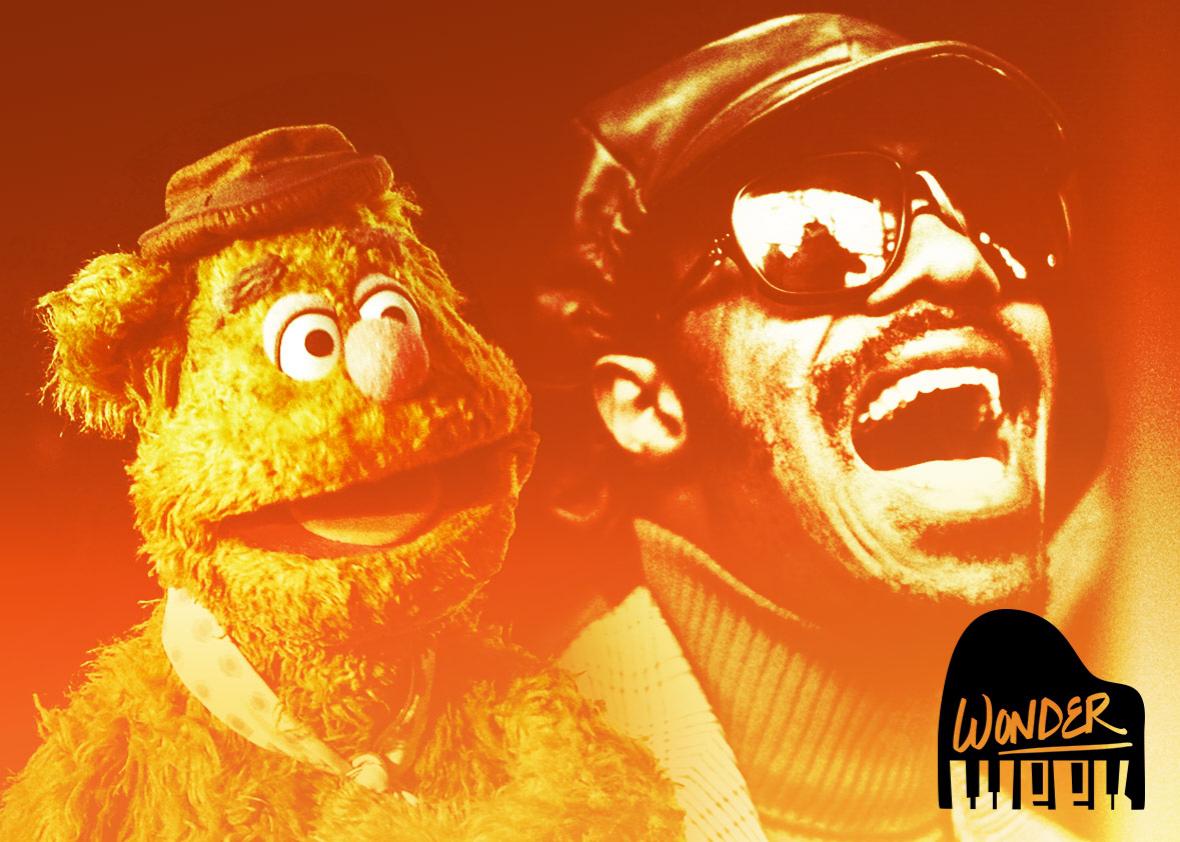What do we love about Stevie Wonder’s voice? It’s warm, familiar, technically accomplished, and full of marrow-deep human feeling. And it’s multidimensional: By turns, Wonder can deliver quiet and bashful (on “Knocks Me off My Feet,” for instance), exuberant and loud (on “Do I Do”), pensive and romantic (on “Ribbon in the Sky”), snide and caustic (on “Skeletons”)—I could go on.
But rather than honoring his wondrous emotional range, I want to propose something counterintuitive. There may be no greater way to honor Stevie’s talent than to take into consideration his more deliberately inauthentic singing moments on record.
Consider, for example, his performance in the vamping coda of the 1976 proto-disco barnstormer “As.” At about 3 minutes and 40 seconds into the studio version, Stevie yelps “Ha!” before lurching into a gravelly voiced, shouted, gospel-inflected passage. It starts with “We all know sometimes life’s hates and troubles/ Can make you wish you were born in another time and space/ But you can bet your lifetime’s that and twice its double/ That God knew exactly where he wanted you to be placed.” You’d be hard-pressed to find a party or wedding of grown black folks anywhere in the U.S. that doesn’t at some point have a DJ spinning “As” as the entire crowd sings along, at full volume, with every word Stevie utters in this sermonized outro.
Stevie’s fervent belting at this late moment in the song is supposed to approximate a Holiness preacher’s improvised fervency, that moment when the pastor “squalls” an important message in a moment of inspired abandon. But the vocal placement in Stevie’s throat—buried and woofy—is strange. My friend Gavin Bradley, a music producer based in Toronto, calls this Stevie’s “Fozzie Bear” voice. Frankly, it sounds funny—affected and almost cartoonish, as if the 25-time Grammy winner might punctuate his next verse with “Wocka wocka!” I liken it to the sound of Louis Armstrong gargling with Scope.
In “As,” this gritty register also arrives wildly disconnected from the style that preceded the coda. You’d be forgiven if you thought another singer altogether had walked in the studio to record it. This is compounded by the fact that Stevie’s singing is clearly overdubbed: When we return to the chorus, after a full 35 seconds of this exaggerated preacher voice (longer would be unlistenable), Stevie jumps in a measure before, and does so in his “normal” singing voice. In other words, we’re not meant to think that Stevie’s singing “naturally” climbs into an eleventh-hour gospel shout at the end of “As”; the gospel section is deliberately and artificially placed there to create a heightened emotional effect.
We also hear Stevie channel his inner Fozzie-Bear-if-Fozzie-Was-a-Baptist-Preacher on 1973’s “Living for the City”—take a listen to the return of the chorus at 5:17, after the sound collage section.
What can we learn from Stevie Wonder’s momentary excursions into performative inauthenticity? In spite of, or maybe because of, the seriousness and gravitas generated by his planetary humanism, Stevie Wonder is a bit of a joker who hasn’t always taken himself seriously offstage. Stevie’s Fozzie Bear moments remind us that his freewheeling, jovial spirit and lack of self-consciousness sometimes spill into his recordings, even his serious ones. Indeed, they’re entirely endearing and smile-inducing passages, so much so that they add a touch of sincerity to his overall sound and to his thematic messages. They can also be deployed as a clapback to those who like to claim that Stevie’s talent is purely natural (which is one step away from the racist characterization that black talent is spontaneous rather than the result of study and practice).
Like so many artists in his Motown cohort, Stevie Wonder is at heart a showman, bringing to his recordings and live performance a palette of technical vocal effects. His precious singing voice—which has been central to the sound of popular music of the past five decades—can’t make any special claims to be more authentic or organic than anyone else’s: We’d do well to consider it a sound he arrived at through hard work that has changed over the years and will continue to change as he ages. His Fozzie Bear moments are those unique times when we so clearly hear him arrive at a sound outside his “natural” style, and so we come to love that sound because he clearly loves it so much. We admire Stevie that much more when we realize he is more than a “natural” Wonder.
